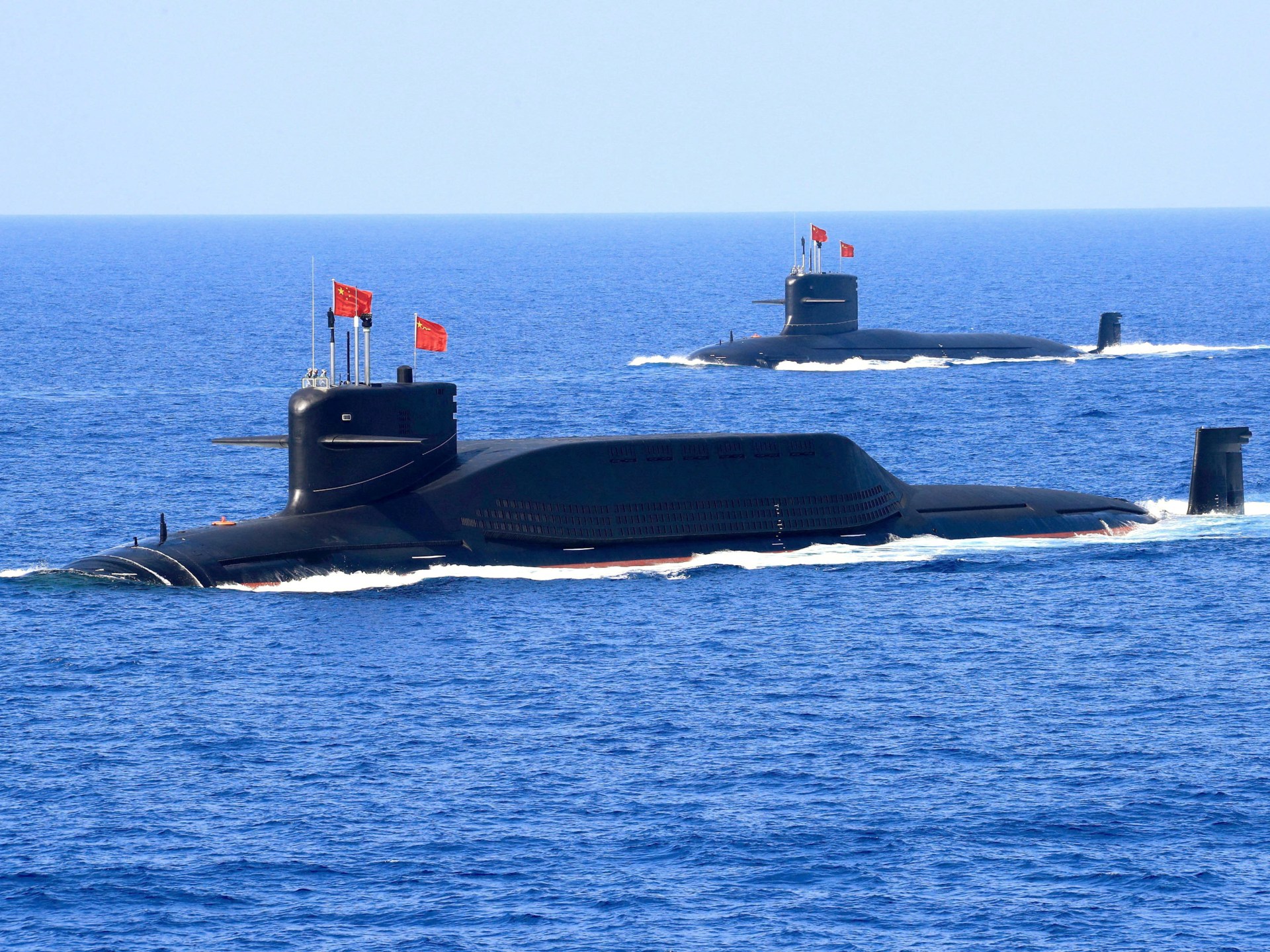A Chinese nuclear-powered ballistic missile submarine in the South China Sea (Reuters)
The question of how likely China is to start a war is perhaps the most important in international affairs today. If Beijing attacks Taiwan or any other target in the Western Pacific, the result will be war with the United States, between two nuclear-armed giants vying for dominance.
If this war is added to the ongoing wars in Ukraine and the Middle East, the world will burn in the furnace of a global conflict unprecedented since World War II.
This is how Foreign Policy magazine summarized a joint article between Michael Beckley, professor of political science at Tufts University, and Hal Brands, professor of global affairs at Johns Hopkins College, in which they confirmed that signs of danger of a Chinese war still exist, despite the recent wave of diplomacy between Washington and Beijing.
How worrying?
Among these signs - according to the authors - is that China is displaying ships, planes and missiles in the largest military mobilization in decades, is stockpiling fuel and food, and is trying to limit the exposure of its economy to sanctions, at a time when Chinese President Xi Jinping says that his country must prepare “for the worst and most severe scenarios.” "to extremes, and to be prepared to withstand strong winds, choppy waters, and even dangerous storms."
The writers noted that all of this comes at a time when Beijing has become more authoritarian and sometimes violent in dealing with its neighbors such as the Philippines, Japan, and India, while periodically declaring its ability to strike, blockade, and perhaps invade Taiwan, which has made many American officials believe that the risk of war is rising. CIA Director William Burns said that the Chinese president seeks to have the ability to occupy Taiwan by 2027.
Some observers believe that China, which has reached its peak, may become aggressive in order to divert attention from its internal problems or to secure some gains as long as it can. However, other analysts believe that the danger of Chinese aggression is exaggerated, and their basic argument is that a country that has not launched a catastrophic war in more than 4 decades ago is unlikely to do so now.
The authors pointed out that this confidence is misplaced because the behavior of any country is profoundly shaped by its circumstances, and circumstances in China are changing in explosive ways.
When one takes into account four such factors, it becomes clear that many of the conditions that once enabled China's peaceful rise may now be encouraging violent decline, according to the authors.
Regression factors
The first of these factors - according to the authors - is that the regional conflicts in which China is a party have become less likely to be settled and resolved peacefully than they were previously. The second is that the military balance in Asia has changed in ways that may make Beijing dangerously optimistic about the outcome of the war. The third is that the prospects for... China's strategic and economic outlook is becoming bleaker, despite improving military prospects. Fourth, Xi Jinping is turning China into "a personal dictatorship of the kind that is particularly vulnerable to disastrous miscalculations and costly wars," they say.
This does not mean that China will invade Taiwan in a certain week, month, or year, and it is impossible to predict the exact timing of the invasion, because the spark that ignites it is often an unexpected crisis, and because wars are like earthquakes, we cannot know when they will occur, but we know the factors that It helps to anticipate it, and today the risk indicators in China are flashing red, the authors say.
The possibility of war between the United States and China may seem remote at first glance, because Beijing has not fought a major war in 44 years, but the absence of war does not mean the absence of aggression, as Beijing has used military and paramilitary capabilities to expand the scope of its control in the South and East China Seas, and has also engaged in Bloody disputes with India.
Source: Foreign Policy

